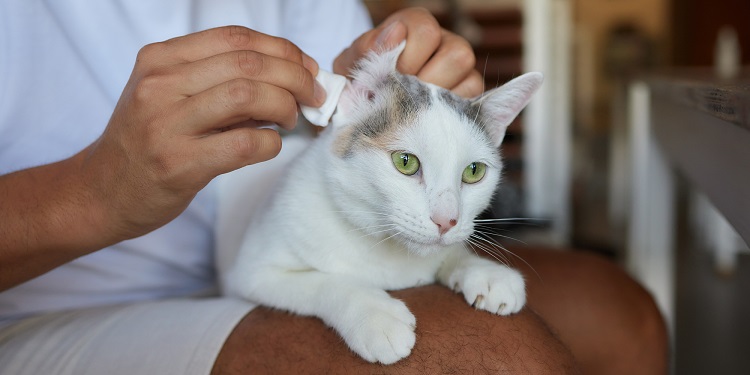Caring for a cat means paying attention to various health concerns, one of which is ear mites. These tiny parasites can cause significant discomfort and health issues for your feline friend. Selecting the right ear mite medicine is crucial for effectively treating and preventing these infestations. This article will guide you through the process of choosing the best ear mite medicine for your cat.

Types of Ear Mite Medicines for Cats
There are several types of ear mite medicines available, each with its own method of action and application. Understanding these types can help you make an informed decision.
Topical Medications
Topical treatments are applied directly to the affected area. These medicines often come in the form of drops or ointments. They are easy to apply and work by killing the mites on contact. Some popular topical medications include pyrethrin-based treatments and ivermectin.
Oral Medications
Oral medications are ingested by the cat and work systemically to kill ear mites. These treatments are usually prescribed by a veterinarian and can be effective in severe cases where topical treatments are insufficient. Oral medications often require a prescription and close monitoring by a vet.
Injectable Medications
Injectable treatments are another option, typically administered by a veterinarian. These medications provide long-lasting protection and are usually reserved for severe or persistent cases of ear mite infestations. Injections often contain drugs like ivermectin or selamectin.
Factors to Consider When Choosing Ear Mite Medicine
Selecting the best ear mite treatment for cats involves considering several factors. Here are some important aspects to keep in mind:
Efficacy
The effectiveness of the medication is paramount. Look for treatments that have been proven to kill ear mites quickly and thoroughly. Reading reviews and consulting with your veterinarian can help you determine the most effective option.
Safety
Safety is another critical factor. Ensure that the medication is safe for your cat's age, weight, and health condition. Some treatments may not be suitable for kittens, pregnant cats, or cats with certain medical conditions.
Ease of Application
Consider how easy the medicine is to apply. Topical treatments may be more convenient for some pet owners, while others might prefer oral or injectable options. Choose a method that you can administer comfortably and consistently.
Side Effects
All medications can have side effects. Common side effects of ear mite medicines include temporary irritation or redness at the application site. Be aware of potential adverse reactions and consult your veterinarian if you notice any unusual symptoms.
Conclusion
Choosing the right ear mite medicine for your cat is essential for maintaining their health and comfort. Always consult with your veterinarian to ensure you are selecting the best treatment for your cat's needs. With proper care and attention, you can effectively manage and prevent ear mite infestations, keeping your feline friend happy and healthy.






